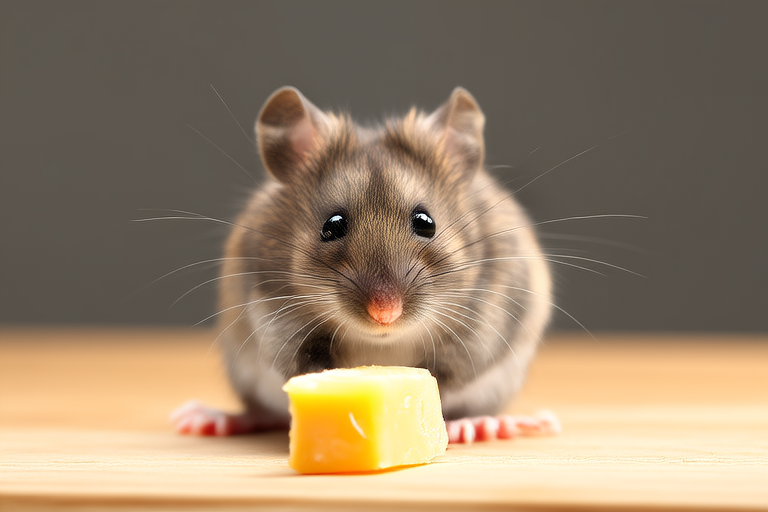Top 10 Fascinating Facts About Fancy Rats You Didn’t Know
Fancy rats, or domesticated brown rats, have long been a favorite among pet enthusiasts for their friendly nature and ease of care. However, there’s more to these small mammals than meets the eye. Below are ten fascinating facts about fancy rats that you might not know, shedding light on their intelligence, behaviors, history, and care.
1. The Intellectual Marvels of Fancy Rats
Fancy rats possess remarkable cognitive abilities, rivaling those of dogs and even some primates. Studies have shown that they can solve complex mazes, learn from observing their peers, and even demonstrate a form of empathy by showing distress when witnessing another rat in pain. Their hippocampus, a part of the brain crucial for memory and learning, is highly developed, allowing them to quickly adapt to new environments and tasks.
2. A Rich History of Domestication
The journey of fancy rats from wild rodents to beloved pets is a tale of adaptation and companionship. Originally native to parts of Asia and Europe, these animals were first domesticated over 200 years ago. Initially kept as laboratory subjects, they gradually found their way into homes as pets. By the late 19th century, they became popular in show circuits, with breeders selecting for various coat colors and patterns, leading to the diverse array of fancy rats we see today.
3. Social Creatures with Complex Relationships
Fancy rats are highly social animals that thrive in groups. They communicate through a variety of vocalizations, body postures, and scent markings. In the wild, they live in structured colonies where each member has a defined role. In captivity, this social behavior translates to strong bonds with both their conspecifics and humans. Rats will often groom each other, share food, and sleep huddled together, showcasing their intricate social dynamics.
4. Skilled Diggers and Nest Builders
In their natural habitats, fancy rats are adept at digging extensive burrow systems. These burrows serve multiple purposes, including shelter, storage, and protection from predators. In captivity, this instinct manifests in their love for digging and creating cozy nests. Providing appropriate materials like shredded paper or hay allows them to engage in this natural behavior, which is essential for their mental and physical well-being.
5. Sensory Whizzes
Despite their small size, fancy rats have keen senses that help them navigate their environment. They have excellent hearing, capable of detecting frequencies beyond human perception, and a highly sensitive sense of smell. This acute olfactory system aids in foraging, identifying mates, and recognizing familiar scents. Their whiskers, known as vibrissae, are touch-sensitive and play a crucial role in spatial awareness and object recognition.
6. Adaptability in Extreme Conditions
Fancy rats are incredibly adaptable, able to survive in a wide range of climates and conditions. Historically, they have colonized various environments, from urban areas to rural landscapes. Their ability to regulate body temperature efficiently and their flexible dietary habits contribute to their resilience. In captivity, they can acclimate to different living conditions, making them relatively easy to care for in terms of environmental requirements.
7. Curiosity and Playfulness
Rats are naturally curious creatures, driven by their inquisitive nature to explore their surroundings. This curiosity often leads to playful antics, such as running on wheels, climbing toys, and investigating new objects. Encouraging this playfulness through enrichment activities can enhance their quality of life. Toys designed for birds or small mammals, tunnels, and ladders can provide ample entertainment and exercise for your pet rat.
8. The Art of Communication
Communication is a vital aspect of fancy rat behavior. Beyond vocalizations, they use a sophisticated language of body movements, facial expressions, and tail positions to convey messages. For instance, a flick of the tail can signal alarm, while a flattened posture might indicate submission. Understanding these signals can deepen the bond between owner and pet, providing insight into the rat’s emotional state and needs.
9. Health Benefits of Pet Ownership
Research indicates that owning a pet, such as a fancy rat, can have numerous health benefits for humans. Interaction with pets can reduce stress levels, lower blood pressure, and improve overall mood. The presence of a pet can also encourage physical activity and provide companionship, contributing to a healthier lifestyle. For individuals who may be allergic to cats or dogs, fancy rats offer a hypoallergenic alternative that still provides the joys of pet ownership.
10. Care and Feeding: A Balanced Diet
Proper nutrition is key to maintaining the health and longevity of fancy rats. Their diet should consist of a balanced mix of commercial rat pellets, fresh fruits and vegetables, and occasional treats like nuts or seeds. It’s important to avoid foods that are harmful to rats, such as chocolate, caffeine, and citrus fruits. Regular access to clean water and a varied diet ensures optimal health, supporting their active lifestyles and cognitive functions.
Why These Facts Make Fancy Rats Great Pets
The combination of intelligence, social nature, and adaptability makes fancy rats exceptional pets. Their ability to form strong bonds with humans and their conspecifics creates a rewarding companionship experience. With proper care and attention, these intelligent and affectionate animals can bring joy and companionship to any household. Whether you’re a seasoned pet owner or considering adopting your first pet, fancy rats offer a unique and enriching relationship that goes beyond the typical pet-owner dynamic.
